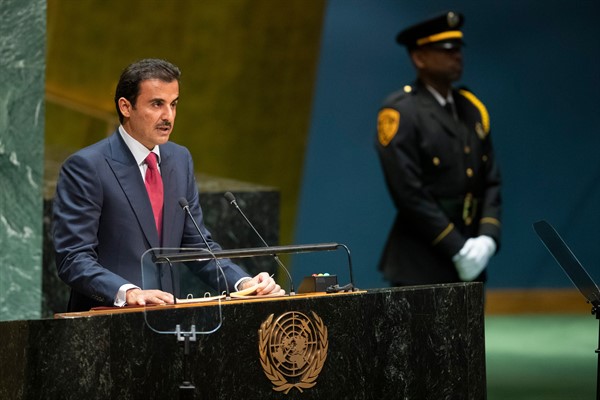Qatar will hold elections for its national legislative body, the Shura Council, for the first time in October. However, rare public demonstrations erupted this week in response to restrictive electoral eligibility requirements, demonstrating that the planned polls entail a degree of risk for the country’s rulers. While the provision for national elections was included in Qatar’s 2003 constitution, they had been repeatedly postponed until this year, partly due to concerns about the prospect of social unrest.
Under the election law that was approved last week by Emir Tamim Bin al Thani, certain Qataris will be able to elect 30 of the 45 members of the Shura Council. Previously, the emir appointed all members of the council, and he will continue to select the remaining 15. The Shura Council has the power to approve the national budget and issue no-confidence votes in Cabinet ministers, as well as draft and vote on legislation, which then requires the emir’s approval to become law.
The controversy centers on who will be allowed to vote, as well as run for office. The law grants voting rights to any Qatari citizen over age 18, male or female, whose paternal grandfather was Qatari and whose family was present in Qatar prior to 1930. It bars naturalized citizens from running as candidates.

